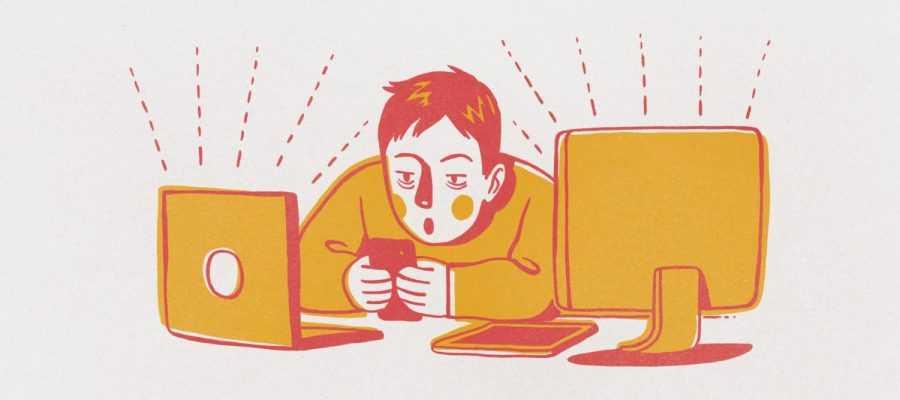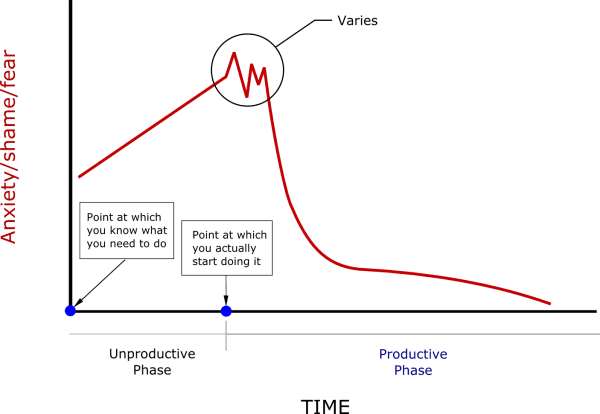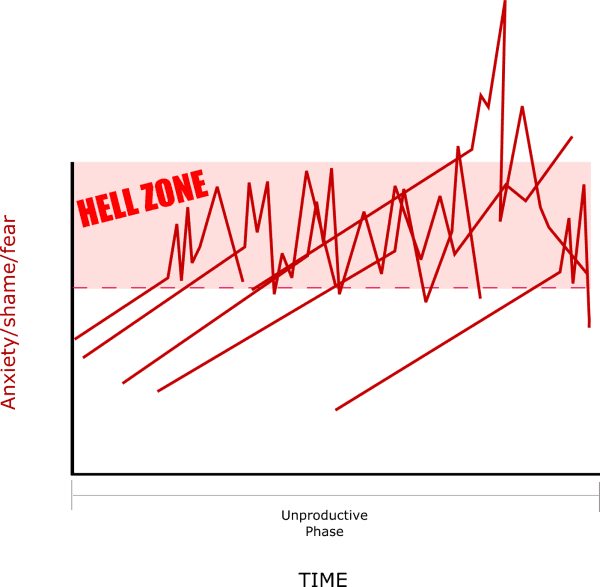How to Get Yourself to Do Things
Curated from: raptitude.com
Ideas, facts & insights covering these topics:
10 ideas
·5.27K reads
55
1
Explore the World's Best Ideas
Join today and uncover 100+ curated journeys from 50+ topics. Unlock access to our mobile app with extensive features.
I Procrastinate
There are normal people, who get overwhelmed on those occasions when they have more obligations to fulfill than time in which to fulfill them.
Procrastinators are constantly overwhelmed because even when we do have time, we don’t make use of it until we no longer have enough of it. If you're one, you'd understand the being late for everything, undone lists for months and missing appointments.
118
1.06K reads
Ignore Your Stuff
Consider your "stuff" as individual happenings that are best treated individually. Ignore all the others while you target to get started on at least one of those To-Do tasks.
The distinction between stuff and things is important. Once you’re treating each obligation as separate from the whole bundle of “stuff”, you can see that they each have a very predictable life cycle. Recognizing each problem’s separateness brings it from the realm of the abstract and endless to that of the concrete and temporary.
105
703 reads
Life Cycle of a Thing
The problem starts when you know what you need to do, but don't. The anxiety, shame and fear lie between the knowing and the doing. Nothing else happens in this phase except your suffering and aging, we can call this the Unproductive Phase.
At some point, often spurred by a crisis of some kind, you start to do the thing. Here's where the anxiety usually spikes — you are entering the Productive Phase, where failure, embarrassment, and the discovery of your own incompetence go from being future-dwelling specters to real-time dangers. That’s why procrastinators avoid ever getting to this part.
116
610 reads
Receding Fear of Tasks
The anxiety from the Productive Phase, soon drown as you begin to realize that the task is pretty doable, is finite and consists of small, ordinary actions like Googling, reading, and sketching.
Your sense of capability swells and the fear recedes. This phase takes less and less willpower and courage as it goes on until the task is in your past, and the life cycle ends.
When you extend the Unproductive phase, the anxiety continues to rise. Deadlines whoosh by, making it more and more absurd and embarrassing that you haven’t acted yet, which only paralyzes you further.
107
463 reads
Hell Zone
A Serious Procrastinator might experience the overlapping fear from many sources and begin to see them as a single problem: I suck at life. This makes it harder for them to do any task with longer Unproductive Phases and increased anxiety with a daring crisis to force them to act.
Such a person is almost helpless until they know to treat each of those lines as a single, predictable course of events. Ultimately there’s no other way to deal with them. To tend to one we must ignore the rest while we do so.
109
417 reads
The smart thing to do is obvious
It is to end the Counterproductive phase as soon as possible. This end is always a concrete, bodily action, often taken with some trepidation: opening up the word processor, dialing a phone number, or getting out a piece of paper so you can sketch up a plan.
103
517 reads
Beginning of the End
Many or most procrastinators are pessimists, habitually overestimating the difficulty of what they are avoiding. They think doing it is the hard part. But not doing it is much harder.
The odd task that turns out unexpectedly hard doesn’t change anything — the counterproductive phase will always be counterproductive, and the anxiety will always shrink with action.
The moment you start acting on something, you are at the beginning of the end of the anxiety associated with that thing.
110
415 reads
Halt the Pointless Rumination
When you halt your work on a given thing due to fear or aversion, you are re-entering the nonproductive phase. Physical action ceases, and pointless rumination begins. Anxiety will rise until you enter the Productive Phase again. This is a good reason not to switch tasks unnecessarily. Push one thing at least until it is coasting, if not finished.
The moment you start avoiding action again, the process restarts.
101
367 reads
Moving to the Other Side
The rising anxiety associated with a particular thing comes from a misapprehension of what it will actually be like to do the work.
The anxiety associated with the work is made of abstract, big-picture emotional concerns, about reputation, legacy, anxiety for the future, self-esteem, comparisons to others — worries about who you are, rather than what you’re doing. Once you enter the productive phase you enter the world of the concrete and finite, putting your related existential despair on the backburner.
You can’t see an obligation for what it actually is until you’re doing it.
102
321 reads
Finish it by Starting
The critical point is always where you enter the productive phase, and this is accomplished by starting alone. Finishing is only a matter of starting from where you are, as many times as you have to, until it’s done.
Most of the resistance and stress is piled up on the boundary between the phases, and so once you’ve started it’s mostly behind you. You finish a thing by starting it until it’s done.
107
394 reads
IDEAS CURATED BY
Vinamra V's ideas are part of this journey:
Learn more about personaldevelopment with this collection
How to set clear objectives
How to follow up after a meeting
How to manage time effectively
Related collections
Similar ideas
5 ideas
How to Get Yourself to Do Things
raptitude.com
2 ideas
How to Do the Things You Keep Avoiding
raptitude.com
6 ideas
Tips To Get Things Done
mindsetcatalyst.wordpress.com
Read & Learn
20x Faster
without
deepstash
with
deepstash
with
deepstash
Personalized microlearning
—
100+ Learning Journeys
—
Access to 200,000+ ideas
—
Access to the mobile app
—
Unlimited idea saving
—
—
Unlimited history
—
—
Unlimited listening to ideas
—
—
Downloading & offline access
—
—
Supercharge your mind with one idea per day
Enter your email and spend 1 minute every day to learn something new.
I agree to receive email updates




